5. The Prestige (2006)
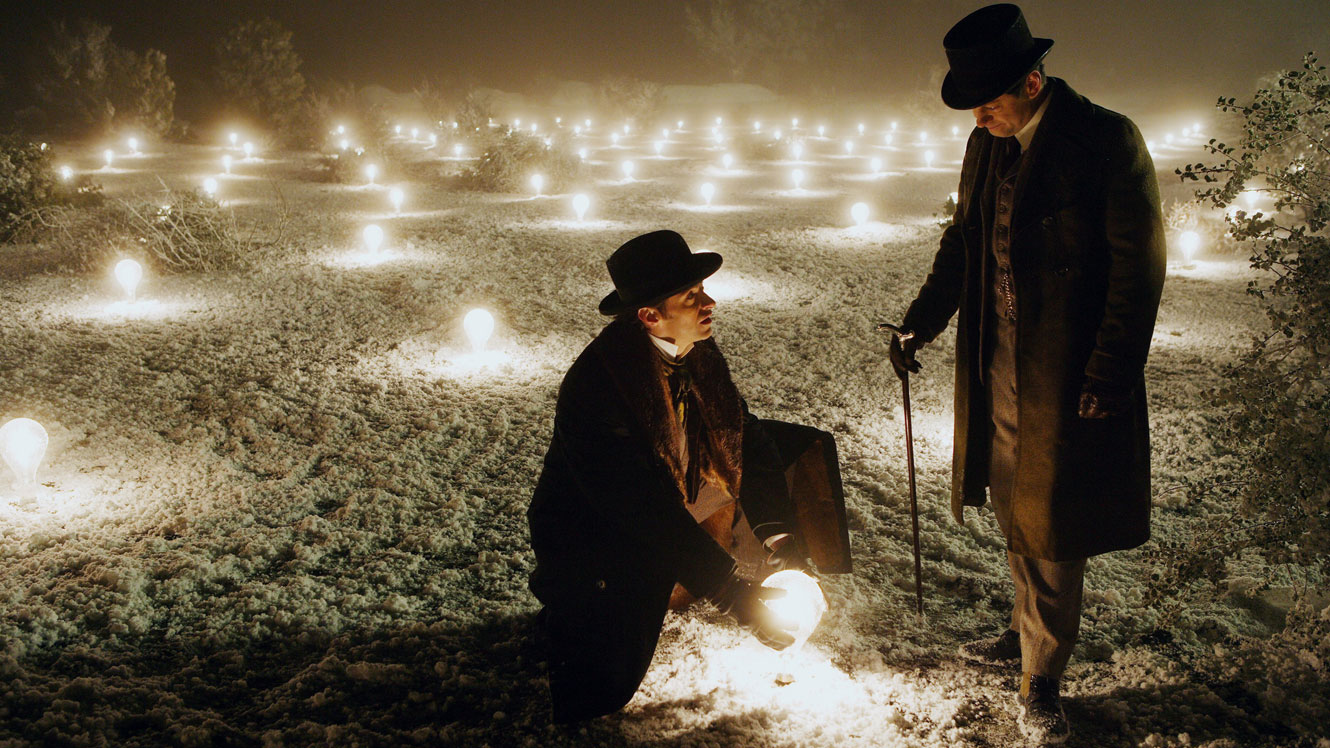
Though his career has fluctuated evenly among several genres from neo-noir to comic book movies, Christopher Nolan, between “Inception,” “Interstellar” and the yet to be widely released “Tenet,” has established himself as one of the leading sci-fi filmmakers of modern cinema.
But before those big-budget juggernauts, the director first entered the realm of the fantastic with “The Prestige,” though the movie is not often talked about as science fiction, which it absolutely is. But the omission is understandable: the movie begins as a grounded dramatic thriller about the brutal rivalry of two magicians who go to increasingly dangerous lengths to one-up each other. Despite the obligatory timeline shifts and complications, it’s for the most part one of Nolan’s most fairly straightforward stories. It’s not until David Bowie’s Nicola Tesla gets introduced into the picture that things start to get complicated.
From then on the film transitions into decidedly genre-y territory, as Tesla’s invention of a cloning machine gives new shape to these men’s obsessions, particularly Hugh Jackman’s Angier, whose use of the device leads to some of the most horrific sequences in all of Nolan’s career – both physically and existentially. It’s a nifty trick worthy of its main character’s dedication to the craft of illusion: it’s somehow simultaneously unexpected and inevitable, an out-of-left-field turn that feels earned, and propels the narrative into genuinely exciting new possibilities.
“The Prestige” remains the only time Nolan has ever made an adaptation (the Batman movies are not adapted from any specific comics, so they don’t count), but the movie feels in every way in keeping with all his other creations – and this twist specifically is as Nolan as it gets.
4. Barton Fink (1991)
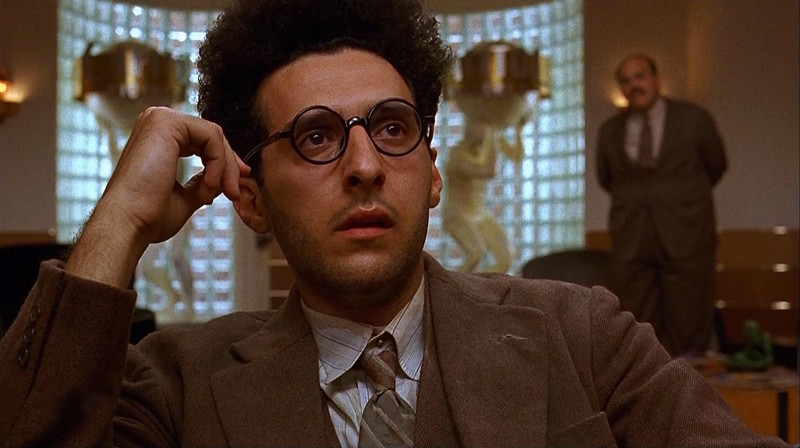
Written between drafts of “Miller’s Crossing” as they struggled with writer’s block, the Coen brothers’ “Barton Fink,” as with all stories about the creative writing process and Hollywood specifically, is an extremely meta movie. It’s riddled with knowing in-jokes about the industry and its players, full of references to Los Angeles heavy-hitters from the 1950s (like William Faulkner) and commentary on the difficulties of being an artist in a corporate structure.
Where “Barton Fink” goes further than other Hollywood satires is that the very nature of the filmmaking becomes meta, changing the genre to reflect the developments of the story and its main character’s mental state. So whereas the movie begins as a fairly grounded dramedy, after a murder happens the atmosphere begins to feel like a classic noir, from Roger Deakins’ moody lighting to the speech patterns of the detectives. And by the end, the film has descended into full blown mad surrealism, as Barton completely loses touch with reality and can no longer distinguish between fact and fiction.
3. Miracle Mile (1988)
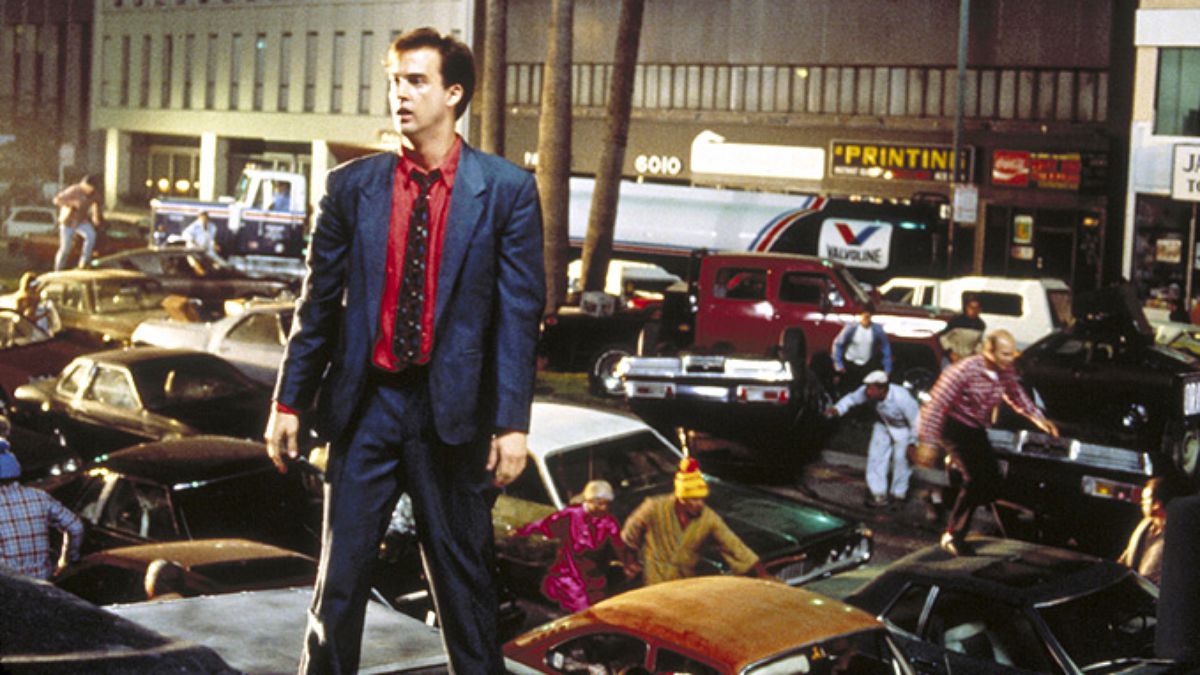
Of all movies in this list, “Miracle Mile” is the hidden gem most deserving of rediscovery. A perfectly calibrated thriller that wonderfully fulfills the possibilities of its premises, the film, in the decades since its release, has garnered appreciation from a moderate number of critics, but it’s such an enthralling and well-crafted piece of filmmaking that it should be hailed and talked about more often.
Different from the other titles listed so far, the genre shift in “Miracle Mile” happens very early on, during the first act; so while it’s not intended as a shocking left turn for the viewer (like most of the other films we are talking about here), the development of the narrative would still come as a surprise to those who watched the movie not knowing anything about it.
After all, the first few scenes feel mostly like a romantic comedy, with the two leads getting to know each other and setting up a date. When the protagonist misses their appointment and goes to a dinner, however, he happens to pick up a call from a pay phone and the frantic voice on the other end of the line tells him it’s a matter of minutes before nuclear missiles are launched and Los Angeles destroyed. From there on, the movie turns into a ticking clock apocalyptic thriller, and one of the very best of its kind.
2. From Dusk Till Dawn (1996)
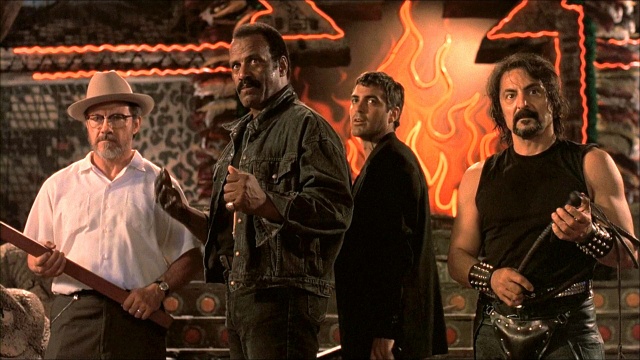
Though it’s not in the first position on this list for a few reasons, there is perhaps no more iconic genre shift than the one in “From Dusk Till Dawn.”
To recap: the film begins as exactly the kind of violent, talky, pulpy crime caper you would expect from a Tarantino script, who was at the time fresh off “Pulp Fiction”: a couple of brothers escaping from the law (George Clooney and Tarantino himself) kidnap a family and force them go through the border of Mexico so that they may escape. Once arriving there, the entire group, criminals and victims alike, go to spend the night at a bar, laying low. What awaits them there, however, would’ve been impossible to predict, both for the characters and the audience: the place is an ancient vampire lawyer in disguise, and their hosts are hungry.
It’s a wildly unexpected turn that completely (and purposefully) disregards the careful build-up of tension the first half in favor of pure B-movie mayhem, down to the introduction of characters with names like Sex Machine (who, of course, has a gun in his genitalia).
The two distinct parts in no way complement each other as with most movies on this list; they are as distinct and disengaged from one another as could be. However, that’s exactly the point and the sheer balls-to-the-wall audacity of Robert Rodriguez and Tarantino must be appreciated.
1. Audition (1999)
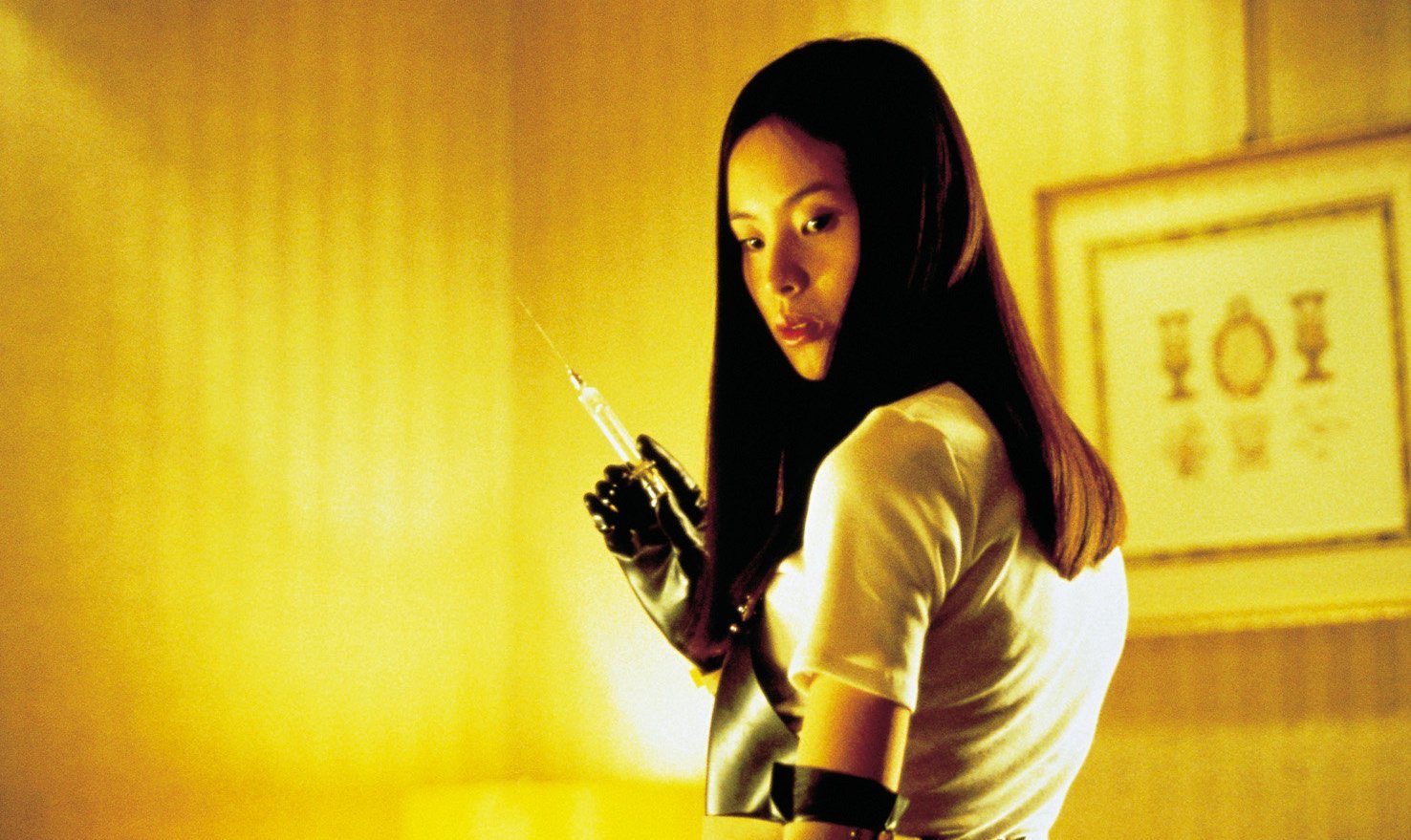
“Audition” is possibly Takashi Miike’s greatest masterpiece, not only for its evident individual merits, but also because there are few other movies in his long, long, long career that exemplify all the sides of his almost unparalleled versatility.
A seasoned director who has been making about four or five movies every year for decades, Miike has naturally circled practically every genre imaginable, as well as genre-bending movies, or films that are an amalgamation of different genres and styles (his wonderfully idiosyncratic “Sukiyaki Western Django” being a good example). But even for him, “Audition” is an unique experience.
The setup of the story is seemingly a recipe for standard dramatic comedy fare: a widower decides to find a new wife, so he stages auditions with several young women in search of the perfect partner. He gets particularly close to one of the girls, and though the movie initially portrays their relationship in a very conventional, quasi-sweet way, it very gradually builds into something far more sinister, culminating in one of the most horrifying and brutal sequences of horror ever put to film.
What gives “Audition” the edge over all other movies that switch genres is that the transition rearranges not only the story, but the filmic language of the picture itself: in the first half Miike’s framing and editing are very non-obtrusive and conventional, but as the tone becomes darker and darker, the filmmaking becomes more stylized, switching to Dutch angles, moody lighting, and deliberately tense pacing.
It’s a feat of directing and makes for one of the best movies of the 1990s.